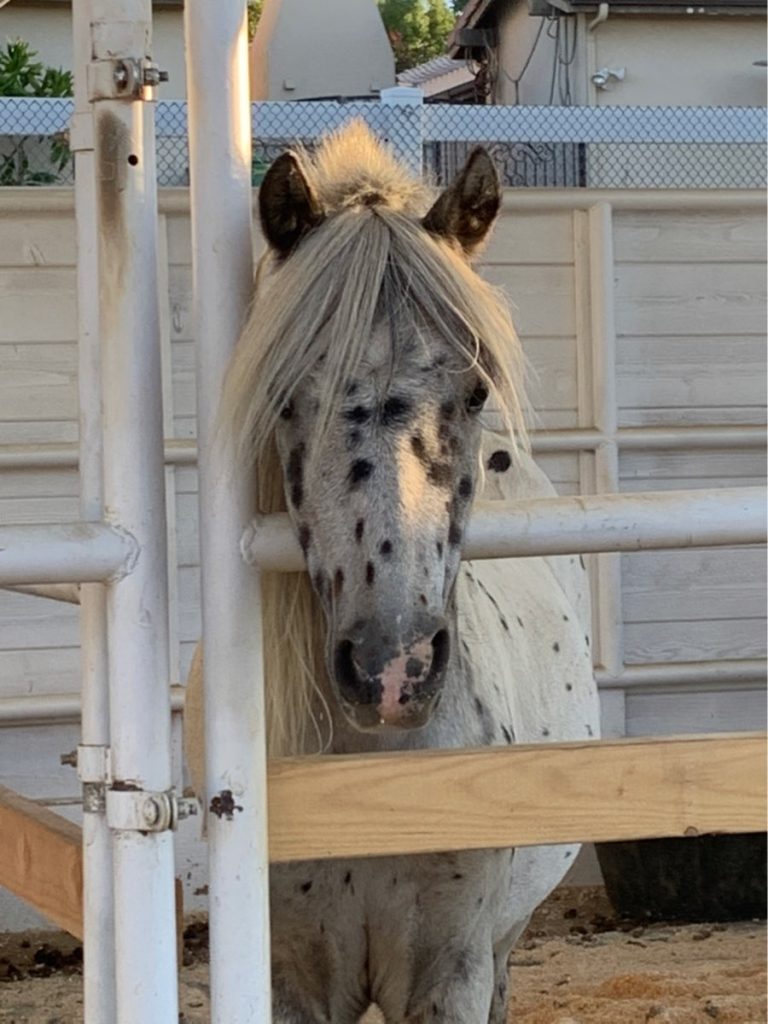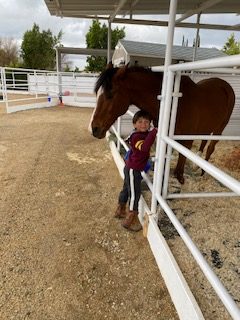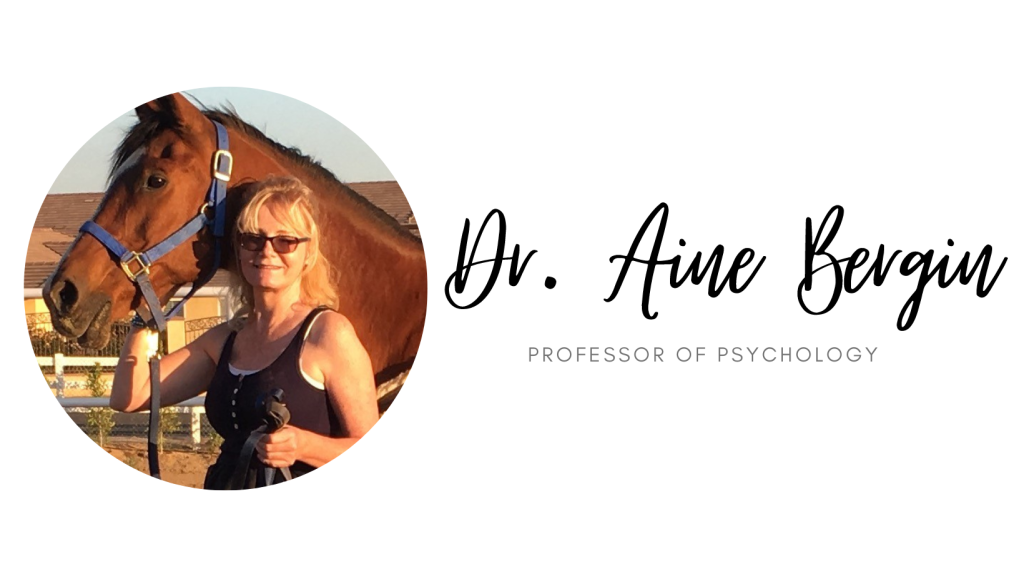
In the journey towards emotional well-being, traditional talk therapy has long been viewed as the go-to method for healing. Over the years of being a clinician, I have thoroughly enjoyed this type of one-on-one conversation with my clients. However, I have also found that thinking outside the box is necessary to help a variety of people with a variety of issues presented in therapy. Having done everything from sand play to art therapy, EMDR, Bio and Neuro feedback, one of my all-time favorites is Equine Therapy!

Equine therapies stand apart from conventional therapy due to the presence of horses themselves. These magnificent creatures possess the remarkable ability to sense and reflect human emotions, creating a safe and accepting environment devoid of judgment. Whether the struggle is anxiety, depression, trauma, or any other emotional challenge, the horse provides an invaluable source of non-verbal support, building a connection that transcends the limitations of verbal communication (Johnson & Gee, 2018).

People ask me all the time, “What do you actually do with the horse?” Well, the answer is simple: the horse becomes a therapeutic partner. Unlike humans, horses lack the inclination to mask or hide their own emotions. Their genuine expressions of joy, fear, trust, or discomfort encourage exploration of emotions without fear of judgment. By interacting with these majestic animals, individuals gain a deeper understanding of their own emotional states and learn to express themselves genuinely and without reservation. Research supports the notion that animal-assisted therapy, particularly involving horses, significantly reduces the symptoms of anxiety and depression in participants (Johnson & Gee, 2018). I have seen countless people almost immediately start to cry in their presence. The tears well up and cannot be suppressed. It’s almost as if the horse draws out these hidden emotions and won’t allow the suppression. That, in and of itself, can be important in the healing process.

Trust is fundamental to building meaningful connections in life and working with horses offers a safe space to explore trust issues (Wells, D. L. 2019). One of my clients, who struggled with disclosure, found comfort in sharing her entire adoption story with Lilli-Mae Goldstein, a Shetland pony with epilepsy, and seemed to draw considerable strength from knowing that Lilli-Mae held onto her story.

The beauty of the horse is its astute ability to perceive subtle changes in human behavior and emotional states. In equine therapy, participants are guided to increase self-awareness and mindfulness, paying close attention to their thoughts, feelings, and physical sensations. This connection to the present moment can be a powerful tool in managing stress and anxiety. (Behan C. 2020). Many clients who visit the ranch realize they have not been attentive to their inner states until they spent time with the horses.

Another essential aspect of equine therapy is developing healthy boundaries and improving interpersonal communication. The Bible teaches us that God created animals. This includes horses. We are to serve a stewardship role toward creation not an ownership (Gen 2:15; Num 35:3-5). This stewardship is intended to include an attitude of respect (Lev 25:3-5; Num 35:33). Working with horses requires clear communication, emphasizing the importance of clear cues, body language, and observing the horse’s response. As individuals practice setting boundaries, asking for what they need, and assertively responding to cues, they cultivate healthier and more balanced interpersonal relationships. (Meyer, JF. 2023) They become aware of what the horse needs and what they need. These newfound skills can be truly transformative outside the therapy context as well helping both young and old alike to communicate more clearly.

With the sense of empowerment and confidence gained from successfully interacting with the horse, people find it translates into other areas of their lives. Children and adults leave sessions that include equine therapy with a stronger sense of self, or a clearer understanding of what they need to do. Constructive feedback and support from experienced professionals can provide tremendous help to individuals, fostering a sense of achievement and self-worth and ultimately boosting their overall emotional well-being.

Seeing firsthand the transformative impact that horses can have on individuals struggling with mental health challenges is truly awe-inspiring. The connection and trust that develop between the horses and the individual in therapy are powerful reminders of the healing power of animals and nature. And by virtue of our creation in the image of God, while working with horses, we can discover that we are uniquely special in comparison to them and to all of creation. The very size of the horse can drive home that difference.

Equine therapy is not just a treatment method; it can be a pathway to self-discovery, growth, and hope. As we continue to explore and expand our understanding of equine therapy, I have no doubt that it will continue to be an extremely valuable and effective tool in helping individuals on their journey towards wholeness.

References
Behan C. (2020). The benefits of meditation and mindfulness practices during times of crisis such as COVID-19.
Johnson, K. R., & Gee, N. R. (2018). The influence of equine-assisted interventions on psychological outcomes: A systematic review and meta-analysis. Social Animals, 22(3), 145-162.
Meyer, JF. (2023) The 14 *essential* safety rules to follow around horses. Horse & Rider. Available at: https://horseandrider.com/western-horse-life/essential-safety-rules-to-follow.
Wells, D. L. (2019). Associations between pet ownership and self-reported health status in people suffering from chronic fatigue syndrome. Journal of Alternative and Complementary Medicine, 25(5), 520-528.



